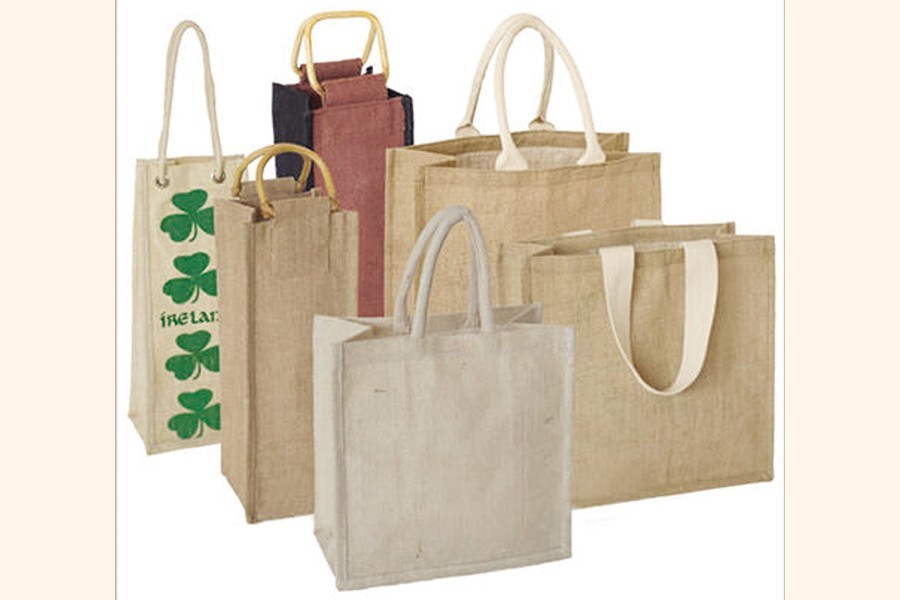Bangladesh now has the opportunity to export jute-made shopping bags to Abu Dhabi, as the city has recently stopped use of single-use plastic bags.
Following this new development, the use of plastic-made shopping bags has been prohibited in hypermarkets, supermarkets, groceries and others retail shops in the capital city of the United Arab Emirates (UAE).
To promote Bangladeshi jute bags, the commercial wing of Bangladesh Embassy in the UAE visited different shopping malls and retail shops, according to a letter - sent by the embassy to the Ministry of Commerce (MoC)
LuLu Hypermarket, the largest superstore in Abu Dhabi, requested the commercial wing to send sample and quotation for 50,000 jute bags, while some other retail shops also suggested to submit sample and quotation.
The letter informed that the Environment Agency - Abu Dhabi (EAD) banned single-use plastic bags in Abu Dhabi from June in line with its integrated policy.
Although the authorities banned 16 types of products under the policy, currently the restriction is being executed on single-use plastic grocery bag.
The representatives of key retail shops announced that they would extend cooperation to the administration through using eco-friendly bags.
The EAD authorities are encouraging the shoppers to use biodegradable and reusable bags made of jute, paper, fabric and starch.
The Bangladesh mission at the UAE has taken initiatives to help shipment of jute bags and it will also extend all kinds of cooperation to the exporters.
The mission has also said the Bangladeshi exporters can communicate with the buyers directly.
On the other hand, the Export Promotion Bureau (EPB) has informed on Monday last the Jute Diversification Promotion Centre, relevant millers, spinners and exporters about the development and urged all to take steps to export the product to the UAE.
Rashedul Karim Munna, convener of Bangladesh Diversified Jute Products Manufacturers and Exporters Association (BDJPMEA), has said the UAE is one of the important markets for Bangladeshi jute-made diversified products.
"If we can utilise the potentials of the market, export of jute products will increase, as it is also a hub for shipments of goods to other developed countries."
Mr Munna, who is also the founder and CEO of Creation Private Ltd, has observed that the sector needs supports from the government to develop itself and compete in the international market with required products.


